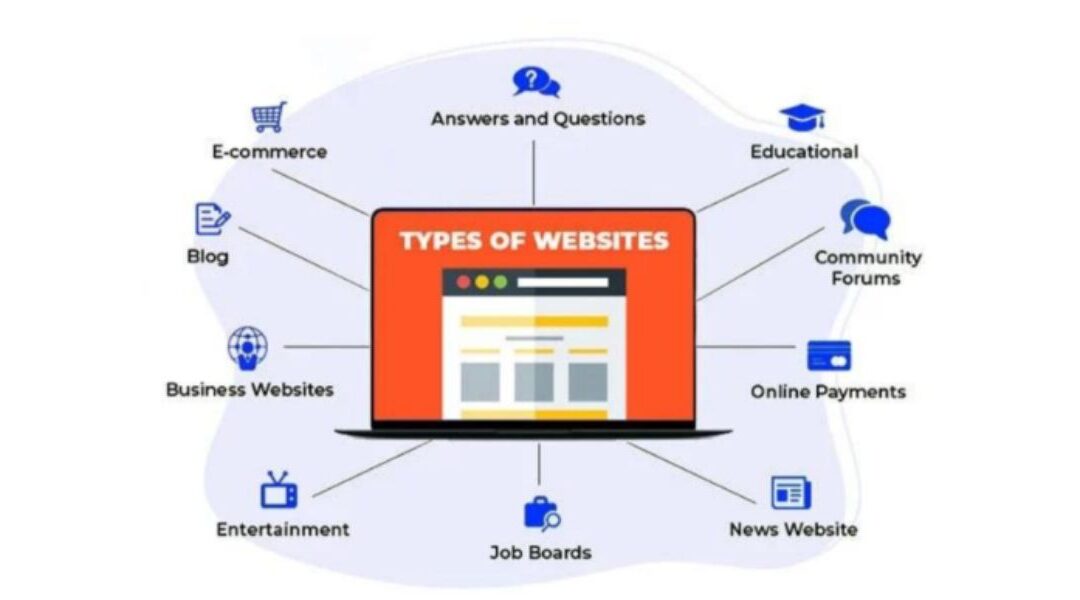Nowadays, a website has become an essential tool for any business, professional, and personal identity that wants to establish a strong online presence. However, not all websites serve the same purpose. There are different types of websites online, each catering to different needs. In this blog post, we will explore the common types of websites, their features, and their benefits.
1. Business Websites
Business websites are used to conduct business activities. These websites represent companies and organizations, providing details about their services, products, and contact information. Companies use these websites to build credibility and attract potential customers. Examples include corporate websites, service-based websites, and local business sites.
2. E-commerce Websites
E-commerce websites are designed for online shopping. They are becoming quite popular all over the world these days. They feature product listings, shopping carts, and secure payment gateways. Examples include Amazon, Shopify stores, and WooCommerce-based websites.
3. Blogs and Personal Websites
Blogs allow individuals and businesses to share insights, news, and personal experiences. This type of website is ideal for content marketing and SEO. Examples include travel blogs, food blogs, and lifestyle blogs.
4. Portfolio Websites
Portfolio websites showcase an individual’s or company’s work, making them ideal for artists, designers, photographers, writers, and freelancers. They typically feature image galleries, case studies, and testimonials.
5. News and Magazine Websites
These types of websites provide the latest news, articles, and updates on a variety of current affairs topics. They often include categorized content, multimedia, and reader engagement tools. Examples include CNN, BBC, and online newspapers.
6. Educational Websites
As technology is advancing day by day, it is starting to have an impact on all aspects, just like in the present day, all educational activities are gradually becoming online-based. Now schools, colleges, and universities have websites, and detailed information about all these educational institutions is available on these websites. Educational websites provide learning materials, courses, and resources for students and professionals. They can feature video tutorials, quizzes, and certification programs. Examples include Coursera, Udemy
7. Non-Profit and Charity Websites
Nonprofit websites are used to spread awareness about various issues at different times. These websites are used to accept donations and promote social causes. They often include mission statements, event descriptions, and ways to contribute. Examples include the UNICEF and Red Cross websites.
8. Membership and Forum Websites
These websites require users to register to access exclusive content or participate in discussions. Examples include online communities, professional networks, and subscription-based sites.
9. Entertainment Websites
Entertainment websites offer content such as videos, music, games, and streaming services. This type of website is very popular day by day. Examples include YouTube, Netflix, and gaming platforms.
10. Landing Pages
Landing pages are single-page websites designed to promote specific products, services, or campaigns. They are often used in digital marketing to capture leads and conversions. This type of page creation is very easy and cost-friendly.
Final Thoughts
Choosing the right type of website depends on your goals and audience is the first challenge for users. When you have a good business website, a blog, or an e-commerce store, having a well-optimized and user-friendly website can enhance your online success.
If you’re planning to launch or revamp your website, WordPress is a smart and scalable choice!

